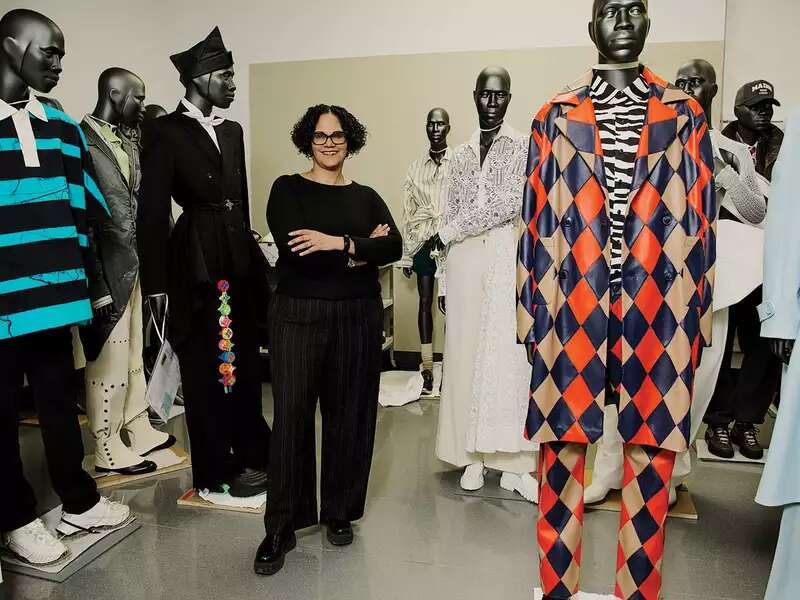

I’ve been spending a lot of time lately thinking about challenges—how often we face them, and mostly, how we deal with them to varying degrees of success. For me, it’s a natural obsession. My years of research as a cognitive scientist have focused on what it takes to handle challenging situations and how to thrive, rather than choke, when it matters most.
That was my mindset on November 3rd when I stepped onto the TEDMED stage in Palm Springs, California. TED is a nonprofit devoted to spreading ideas, and I had never delivered a TED Talk before. To be truthful, I was nervous. Ironically, the program had me labeled as the “Performance under Pressure Sage.” It didn’t help that I had just flown in from giving a speech in Japan. My mother, Ellen, was there to meet me. She kept insisting, as mothers often do, that what I needed most was something to eat.
But I was prepared. In the month leading up to the talk, one strategy was to call on Barnard’s own Cyndi Stivers ’78, who is both a devoted Trustee of the College and director of the TED Residency incubator program. Not for nothing, her TED title is “encourager-in-chief.” With Cyndi’s memorization strategies and several long plane rides during which to implement them, I worked my way through the 2,300 words, doing all that I could to implant them in my brain.
What was most interesting about this particular challenge was how closely life was imitating art. The subject of my fifteen-minute speech, delivered, like all TED Talks, without notes, was the very thing I was trying so hard to do—ready myself to succeed when it mattered most. When I walked out on stage and took my place on the red carpet circle that I’d heard so much about, I could feel my body react to the pressure. It was dark, but the front row of faces was visible as I tried to retain my focus. And then, because there really wasn’t any other option, I began to recite the words. After the first minute or so, the lines sounded familiar and I felt myself breathing more steadily again. I slowed down and gave the speech that I knew how to give—the speech I had practiced and prepared for.
While I would rather not undertake that particular challenge again any time soon, like other difficult tasks, it was valuable and instructive. I felt like a student again, reaching out for help, trying something tough and new, and working hard to achieve it.
The TEDMED experience was also an important reminder, especially at the start of my work as Barnard’s president, of what getting an education truly means. Facing challenges is what we ask of Barnard students every day, at every point in the process. We ask that they keep their minds open to the unfamiliar, embrace complex and often unsettling questions, and put themselves in less-than-comfortable situations so that they can grow and learn from them.
Over the course of my first semester at Barnard, I have been the one to learn from the students. I have done my best to listen to their thoughts and concerns, to sit in on meetings and classes and develop a sense of what they care about and what they need. They have helped me understand their smaller, daily challenges and the bigger, scarier things that they imagine facing in the future. It is our job, as a college, to prepare them for both—to provide the advising, faculty support, and student services that keep things going in the classroom and on campus, and to spark their imaginations for life beyond Barnard through career development, internships, mentoring, and exposure to all of the opportunities that New York City has to offer.
And we are seeing it happen. Three-quarters of Barnard students participate in internships with academic, business, government, and nonprofit organizations across New York City, and with that they gain invaluable experience, develop skills, and cultivate an understanding of the endless opportunities that are out there—from interning in one of the city’s stellar museums, to helping local nonprofits think about how they market themselves in their communities, to conducting summer research in a science lab. We are also building on these efforts by encouraging our students to develop a network of women to work with and work for and admire. Of course, they are also very fortunate to have you for inspiration—for examples of the many educational and career paths they might pursue and for your grace under pressure along the way.
Helping our students take on the challenge of their education is no small feat, but it is also a privilege. It is why I am here, and I know that it is why the faculty and staff come to work each day. And helping them keep those challenges in perspective with all that is going on in the country and the world—well, that is also part of our job.
Let me close with the last lines of my TEDMED Talk, because life does imitate art: “What happens in our heads makes a difference. And knowing this can change how we prepare ourselves and each other for success.” •


